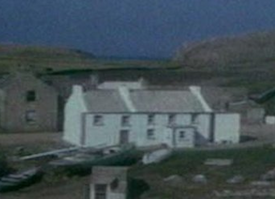Another hecklers’ veto; another failure of freedom of expression on campus
Via 9th Level Ireland, I am alerted to the following story [with added links]:
Euthanasia lecture cancelled
A controversial public lecture on euthanasia has been cancelled minutes after it began when a group of over 20 protestors disrupted it. The guest speaker Prof Len Doyal, an open proponent of both voluntary and non-voluntary euthanasia, had to be escorted from the lecture theatre at Cork University Hospital by security staff. The lecture entitled ‘Why Euthanasia should be legalised‘, formed part of the annual spring series organized by CUH’s Ethics Forum and started at 5pm. As the 350 attendees were being welcomed, a group of over 20 people stood up and began shouting. Witnesses say some began saying the rosary and one man accused Prof Doyal of being a murderer. A decision was taken soon afterwards to cancel the lecture on public safety grounds but it took some time to get the message through to the audience because of the continuing strong vocal opposition by protestors. …
This is terrible news. As I have argued here before, to ensure that hecklers do not have a veto, those who organise such controversial events must ensure that the controversial speakers actually have the opportunity to speak.…
Tory Island and Unjust Enrichment
 Tory Island is a small island of striking natural beauty off the northwest coast of Co Donegal. So, film-maker Neville Presho must have thought himself a lucky man to have a holiday home there. Until, one day, he returned to the island, and found that the house was gone, replaced by car park for an adjacent hotel (Irish Emigrant | Irish Independent | Irish Times | Kerryman | RTE | Soft Irish Rain). In an ongoing High Court action [an important preliminary stage is here], Mr Presho’s claim against the hotel in respect of the demolition of the house failed, but Mr Justice Murphy suggested that there may be a restitution claim for the hotel’s use of the site as a car park. Tim Healy’s story in yesterday’s Irish Independent explains the restitution claim:
Tory Island is a small island of striking natural beauty off the northwest coast of Co Donegal. So, film-maker Neville Presho must have thought himself a lucky man to have a holiday home there. Until, one day, he returned to the island, and found that the house was gone, replaced by car park for an adjacent hotel (Irish Emigrant | Irish Independent | Irish Times | Kerryman | RTE | Soft Irish Rain). In an ongoing High Court action [an important preliminary stage is here], Mr Presho’s claim against the hotel in respect of the demolition of the house failed, but Mr Justice Murphy suggested that there may be a restitution claim for the hotel’s use of the site as a car park. Tim Healy’s story in yesterday’s Irish Independent explains the restitution claim:
…Hotelier in car park row faces order over damages
Holiday home ‘vanished’ while owner was absent
A Tory Island hotelier who built a car park on the remains of a 150-year-old holiday home which burnt down may have to pay damages to its former owner. A High Court judge who is presiding over a legal row over a holiday home which allegedly “disappeared” and became a car park for an adjoining hotel yesterday said the case may be dealt with on the basis of unjust enrichment by the hotel.
Libraries
 On Slaw, Michael Lines lauds a presentation by Paul Holdengraber, Director of the Public Education Program at the New York Public Library:
On Slaw, Michael Lines lauds a presentation by Paul Holdengraber, Director of the Public Education Program at the New York Public Library:
Yesterday’s Keynote was probably one of the best talks on any topic I have ever heard. Inspiring, elevating, and hilarious, Paul Holdengraber delivered a wonderful message about reading, conversation, and libraries that has to be seen to be appreciated. Have a look at it here …
It’s wonderful, a rousing and triumphant vindication of libraries everywhere (even though the server seems to be picky about whether it will let you view it). Unfortunately, the powers that be don’t seem to see libraries in these terms. Rachel Cooke – journalist with the Observer and Guardian – has been blogging and writing about luddite UK policy relating to libraries:
If those of us who love books, and libraries, and believe they are a vital, beautiful and cherishable part of our cultural and social heritage, take our eye off the ball now, we will regret it. We must make a fuss, and we must name and shame those who are set on destruction.
Her colleague John Cooke is similarly concerned. There do not seem to be similar threats here, but let’s see what next Tuesday’s budget brings.…
Cowengate and seditious libel
 I wonder whether anyone has suggested that Conor Casby’s caricatures of Cowen constitute a seditious libel? It’s not that fanciful a question: the common law crime still exists, and has been used against milder criticism. But the mere fact that the question can be asked in this context demonstrates just how ridiculous the crime actually is. It’s on the way out in Australia. Now, thankfully, its days may now finally be numbered, both in Ireland and in the UK too!
I wonder whether anyone has suggested that Conor Casby’s caricatures of Cowen constitute a seditious libel? It’s not that fanciful a question: the common law crime still exists, and has been used against milder criticism. But the mere fact that the question can be asked in this context demonstrates just how ridiculous the crime actually is. It’s on the way out in Australia. Now, thankfully, its days may now finally be numbered, both in Ireland and in the UK too!
As for Ireland, the Minister for Justice suggested this week that we could see the enactment of the Defamation Bill, 2006 before the summer. Since it was introduced in July 2006, the Bill has suffered more delays than Ryanair, to say nothing of the long journey to reach that point which began with the work of the Law Reform Commission in 1991 (Consultation Paper and Report on the Civil Law of Defamation; Consultation Paper and Report on the Crime of Libel). The tortuous passage of this Bill through the Oireachtas has taken so long that I won’t hold my breath, but the fact that it is likely to recommence its less-than-steady progress is welcome news nonetheless. One of the many great benefits of this enactment will be the abolition of the common law crime of seditious libel.…
Reminder: Rethinking Law – Law Student Colloquium at TCD on Saturday
 Are you a Law student, undergraduate or postgraduate? If so, you should come along to a colloquium in TCD next Saturday, 4 April 2009, from 11:00am, and hear other law students present short papers across the full range of the law. Full information about this exciting event is available here, and attendance is free, but you will need to register by email in advance. Hosted in the School of Law, Trinity College Dublin, the event has been made possible by the generous support of Allen & Overy and Matheson Ormsby Prentice. It’s going to be interesting and lot of fun (and there’s a wine reception at the end). So, what are you waiting for? Send that email now!…
Are you a Law student, undergraduate or postgraduate? If so, you should come along to a colloquium in TCD next Saturday, 4 April 2009, from 11:00am, and hear other law students present short papers across the full range of the law. Full information about this exciting event is available here, and attendance is free, but you will need to register by email in advance. Hosted in the School of Law, Trinity College Dublin, the event has been made possible by the generous support of Allen & Overy and Matheson Ormsby Prentice. It’s going to be interesting and lot of fun (and there’s a wine reception at the end). So, what are you waiting for? Send that email now!…
The good, the bad, and the ugly
 Three stories from today’s Irish Times caught my eye. First, the good. The Press Council of Ireland and the Office of the Press Ombudsman launched their first annual report yesterday. The press industry undoubtedly did a good thing in establishing the Press Council and the Ombudsman, and yesterday’s report on the first year of operation shows the wisdom of that decision. The launch of the report is covered in the Home News section of the Irish Times, and welcomed in the lead editorial . From the report [with added links]:
Three stories from today’s Irish Times caught my eye. First, the good. The Press Council of Ireland and the Office of the Press Ombudsman launched their first annual report yesterday. The press industry undoubtedly did a good thing in establishing the Press Council and the Ombudsman, and yesterday’s report on the first year of operation shows the wisdom of that decision. The launch of the report is covered in the Home News section of the Irish Times, and welcomed in the lead editorial . From the report [with added links]:
Praise for complaints system after release of Press Ombudsman’s report
AGGRIEVED READERS made over 370 complaints about newspapers and magazines last year during the Press Ombudsman‘s first year of work, his annual report reveals. … Reviewing the performance of the Press Council of Ireland and the Office of the Press Ombudsman in their annual report published yesterday, council chairman Prof Tom Mitchell said the innovative and effective regulatory system offered significant benefits to the press and public. …
Moreover, speaking at the launch, the Minister for Justice, Dermot Ahern, said he hoped that the long-delayed Defamation Bill, 2006 would become law by the summer, an aspiration which Prof Mitchell greeted as “wonderful news”.…
Cowengate follow-on: a question, and more pictures at the exhibitions
- Emerson, Lake and Palmer performing their 1971 album version of Pictures at an Exhibition
The Cowengate controversy certainly caught the imagination this week; and, by way of update to my earlier posts on the topic, I’ve collected some more links about the affair below. Perusing the coverage in print, broadcast, and online, a question has repeatedly occurred to me: for all that there was online outrage, how much of it was reflected in the print or broadcast media? My impression is that whilst online commentary reflected and often relied upon the print or broadcast media, there was (by and large) very little traffic the other way. Is this a fair assessment? Answers, please, in the comments below.
[The remainder of the post is another compendium of links relating to the Cowengate controversy].…
© cearta.ie 2024. Powered by WordPress
